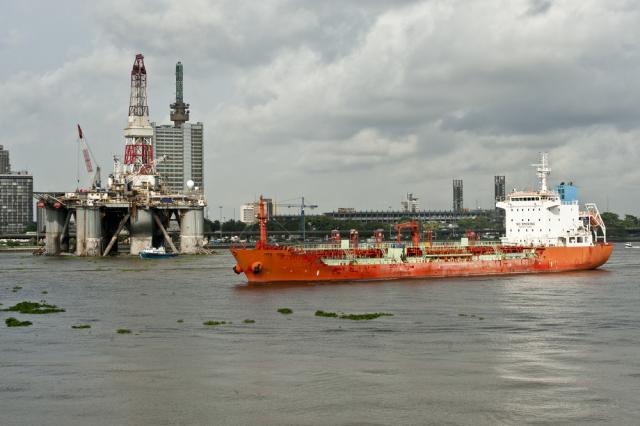Amnesty International and the Centre for Environment, Human Rights and Development (CEHRD) dropped a bombshell early this week, unveiling documents pertaining to the Royal Dutch Shell Oil 2008 Bodo oil pipeline spill.
The documents indicate that the Shell spill released 60 times the amount of oil Shell had originally reported in the ravaged Niger Delta coastal town with a population of 60,000 people.
In a press release, Amnesty explained its findings:
The previously unpublished assessment, carried out by US firm Accufacts, found that between 1,440 and 4,320 barrels of oil were flooding the Bodo area each day following the leak. The Nigerian regulators have confirmed that the spill lasted for 72 days.
Shell’s official investigation report claims only 1,640 barrels of oil were spilt in total. But based on the independent assessment the total amount of oil spilt over the 72 day period is between 103,000 barrels and 311,000 barrels.
Adding insult to injury, Shell has yet to begin to clean up what it has destroyed. “More than three years after the Bodo oil spill, Shell has yet to conduct a proper clean up or to pay any official compensation to the affected communities,” wrote Amnesty.
This report comes on the heels of the two-year anniversary of the BP Gulf Coast Oil Disaster and in the wake of pipeline infrastructure springing up like wildfire all around North America for the unconventional oil and gas industry. It also comes two months after the Obama Interior Department’s approval of Shell’s plan to begin drilling for oil off the North Slope of Alaska in the Arctic starting in July.
Patrick Naagbanton, Coordinator of CEHRD summed up the situation, stating:
The evidence of Shell’s bad practice in the Niger Delta is mounting. Shell seems more interested in conducting a PR operation than a clean-up operation. The problem is not going away; and sadly neither is the misery for the people of Bodo.
A tragic situation for Bodo’s citizens, to put it mildly. How many more communities will endure similiar disasters before Shell and others are held to account for their damage?
Subscribe to our newsletter
Stay up to date with DeSmog news and alerts







